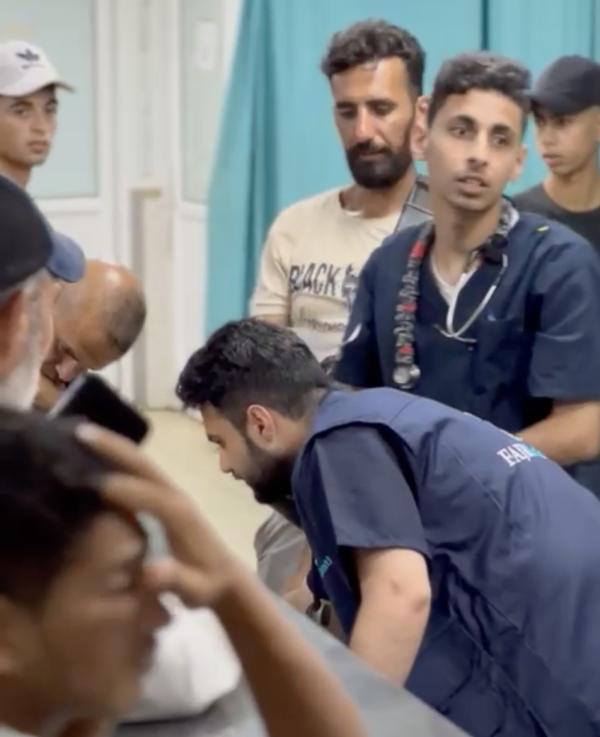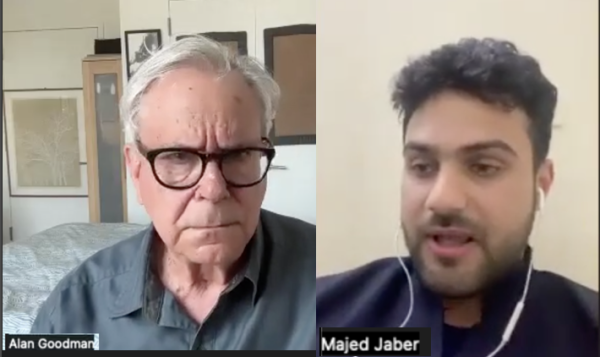
Dr. Majed Jaber (in blue vest) treating a patient at European Gaza Hospital, June, 2024. Photo: Courtesy of Dr. Majed Jaber
The following is an excerpt from an interview revcom.us and The RNL—Revolution, Nothing Less!—Show correspondent Alan Goodman did on June 22 with Dr. Majed Jaber, a Palestinian physician working at the European Gaza Hospital in southern Gaza. The interview took place as Dr. Jaber was working a 24-hour shift at the hospital under unimaginably difficult conditions, including that during the interview, Israeli rockets landing nearby shook the hospital. Stay tuned to revcom.us and The RNL Show for more from this interview.

Alan Goodman: I’d like to return to the situation with your lack of supplies and personnel, but before I do, could you talk about who is coming to the hospital. We know that there is widespread famine, we know that there is widespread disease. We know that there is widespread injury. But can you just give us a sense of who these people who are coming to you in such desperate need are?
Dr. Majed Jaber: Absolutely. We have a lot of cases of malnutrition, especially very old people with very heartbreaking stories. You see this mother who lost all her children, a father who lost his wife, and those who take care of them, and these people get in depression. They are not very compliant with their medication; they do not eat well. And they present to us because someone noticed something is wrong and they are very malnourished.
Of course, let’s not mention the organized famine, let’s say starvation of our people. Let’s say the amount of food that is allowed into Gaza is specifically calculated and this is not a special case during this genocide. If you look before October 7 you can see the guidelines of the Israelis. They calculate how many calories per capita in Gaza. And this is very scary if you think about it. And now it has become way more severe. And so, you see a lot of babies underweight. It’s really challenging because trying to feed these babies is also a problem, like medically speaking, you can’t just feed the baby all of a sudden, they can get refeeding syndrome1; they can get into a lot of problems.
Also, a lot of the children cannot tolerate formula milk, or their mother’s milk also. They need this special formula, and this formula is usually very expensive. You can’t really have it here in Gaza nowadays and you just basically see the child dying in front of your eyes. You can’t barely do anything about it. We see a lot of cases, to give a better picture, a lot of these kids and children used to go to Jordan, go to Egypt to receive treatment for their chronic illnesses because our health sector is very lacking and now, once the war started, the genocide started they are not allowed to travel. And we had a huge number of these children dying just because we can’t do anything about it.
And of course, during this summer especially, there has been an outbreak of a lot of infectious organisms, mainly hepatitis A. We have a lot of cases of gastroenteritis. Let’s say, we suspect that there are a lot of cases of cholera here which is very scary. A patient or two died in the middle area of Gaza. And even like today I’m just suffering from, I don’t know, probably acute gastroenteritis, probably could be hepatitis A. And this is also another topic. Even doctors like me who are very meticulous about their hygiene, about their food habits will get infected eventually because we lack proper hygienic tools.